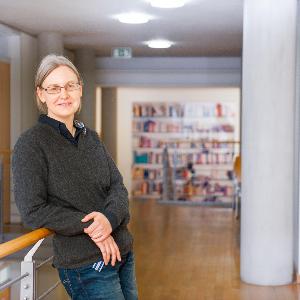Leibniz Prize for LMU researcher Karen Radner
9 Dec 2021
Karen Radner is studying the early history and culture of the Near and Middle East. Now she has won Germany’s most important research prize in recognition of her work.
9 Dec 2021
Karen Radner is studying the early history and culture of the Near and Middle East. Now she has won Germany’s most important research prize in recognition of her work.

© LMU
How was it possible, some 3,000 years ago, for an empire to arise that extended across the entire eastern Mediterranean and large parts of the Middle East? What marked the heyday of this early culture? Karen Radner is considered one of the world’s foremost experts on the history and culture of the Neo-Assyrian Empire. In thematically diverse and interdisciplinary projects, the LMU scientist studies the elements of early forms of power politics as well as the dynamics of settlement development and the evidence of early advanced civilization.
The German Research Foundation (DFG) has today honored Karen Radner with one of this year’s Leibniz Prizes. In tribute to her research, the DFG said, “Radner has done pioneering work on the interpretation of Assyrian sources, and her work has the potential to redefine the mutual knowledge and relations between East and West.”
Karen Radner holds the Chair for the Ancient History of the Near and Middle East at LMU, supported with a Alexander von Humboldt Professorship. Born in Austria in 1972, Radner studied at the University of Vienna and at the Freie Universität Berlin and obtained her doctorate in Vienna in 1997. She then worked as a researcher at the Universities of Helsinki and Tübingen and at LMU Munich, where she earned her Habilitation in 2004 at the Institute of Assyriology and Hittitology. In 2005 she went to University College London (UCL) as a lecturer and became Professor of Ancient Near Eastern History there in 2011. She acceded to the Humboldt Chair at LMU in August 2015.
The Gottfried Wilhelm Leibniz Prize of the German Research Foundation (DFG) is the most important German research award. Ten scientists have been honored with the award this year. The award winners can use the prize money of 2.5 million euros for their scientific work for up to seven years.